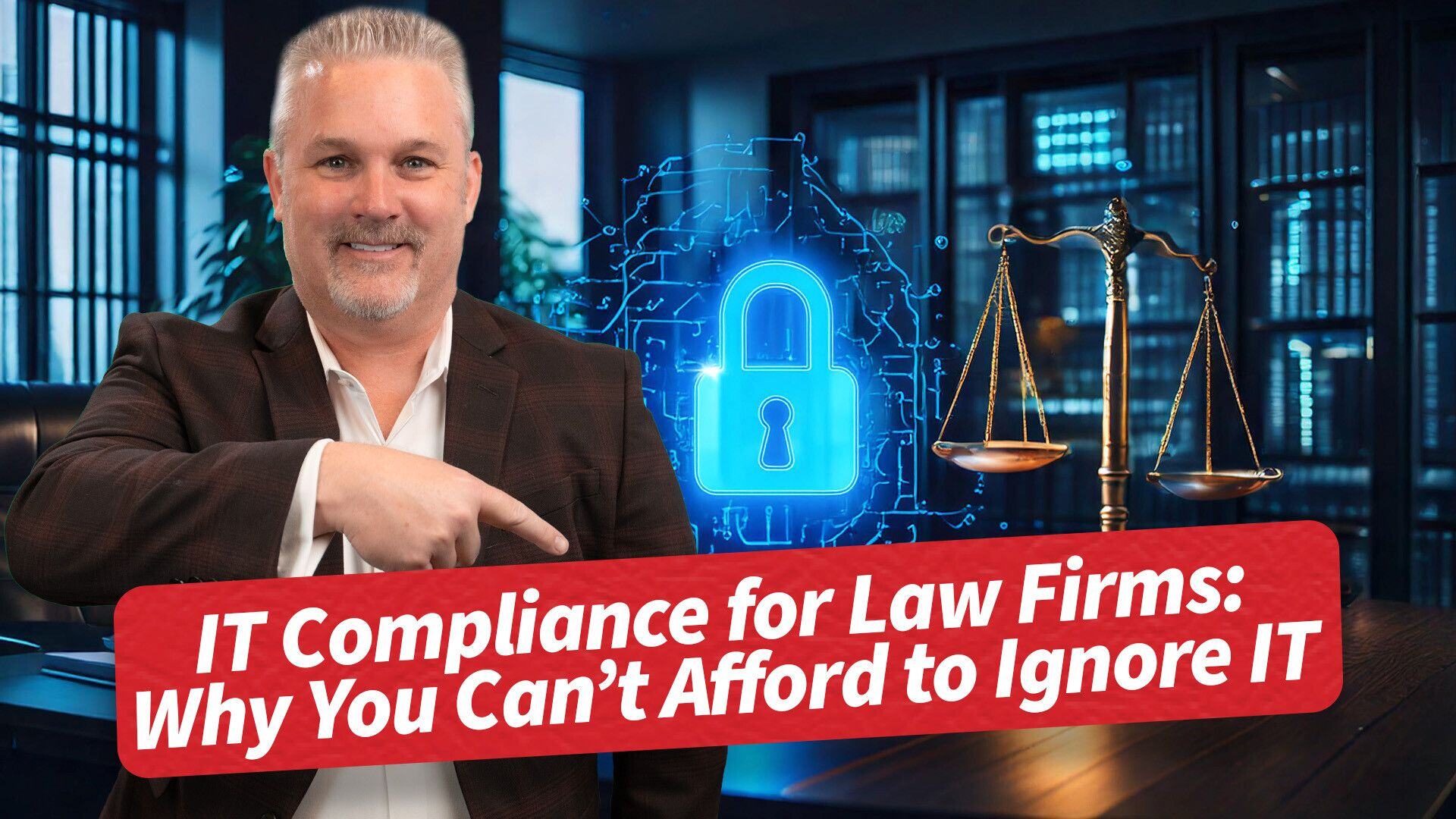IT Compliance for Law Firms: Why You Can’t Afford to Ignore IT
November 27th, 2024

Are you risking your law firm’s reputation by ignoring IT compliance? Cyberattacks are skyrocketing, with ransomware incidents surging by 105% in 2023 alone. Nearly 25% of law firms have already experienced data breaches, exposing sensitive client information and leading to lawsuits, fines, and lost trust. This video reveals the essential cybersecurity steps every law firm needs to stay protected, from encryption to access controls, audits, and training. Don’t let outdated practices make you an easy target—discover how to safeguard your firm today.
Imagine this: your law firm’s confidential client case files are leaked and end up on the dark web. Could your practice survive the lawsuits, fines, and irreparable loss of trust? It’s a nightmare scenario, but it’s becoming all too common. Law firms handle some of the most sensitive data imaginable, making them prime targets for cyberattacks.
The good news? With proper IT compliance and cybersecurity practices, you can protect your firm, your clients, and your reputation. Here’s why IT compliance isn’t optional—and the key steps you need to take to safeguard your practice.
Why Law Firms Are Targets
Law firms are treasure troves of sensitive information—client records, case files, financial data, and more. Hackers know this and are always on the lookout for weak security practices to exploit. In fact, nearly 25% of law firms have already experienced data breaches.
The California Consumer Privacy Act (CCPA) underscores just how serious this is. Under the CCPA, law firms can be held liable for data breaches if they fail to implement reasonable security measures. The penalties? Consumers can seek statutory damages of $100–$750 per incident, or actual damages if higher. Beyond the financial hit, there’s the damage to your reputation and client trust—something no amount of money can fix.
With ransomware attacks surging by 105% in 2023, staying ahead of evolving threats is critical. Compliance isn’t just a legal obligation—it’s a survival strategy.
4 Key Steps to Stay Compliant
1. Encryption: Lock Down Your Data
Encryption isn’t just for tech giants or government agencies—it’s your first line of defense. Every email you send and every document you store should be encrypted. This ensures that even if hackers get their hands on your data, they won’t be able to read it without a decryption key.
Tools like encrypted email platforms and secure cloud storage make encryption easy to integrate into your daily operations. Think of encryption as a digital lockbox for your firm’s sensitive information.
2. Regular Audits: Spot Weaknesses Early
Your IT systems need routine checkups, just like a car. Regular audits are crucial to uncovering weak spots in your network, software, and processes before hackers do.
These audits also help ensure your firm remains compliant with industry standards and evolving regulations. Conduct audits quarterly or after major system updates to stay on top of potential vulnerabilities. Proactive audits save you from the much greater costs of reactive damage control.
3. Access Controls: Limit Who Sees What
Not everyone in your firm needs access to everything. By following the “least privilege” principle, you minimize the risk of insider threats and accidental breaches.
Implement tools like multi-factor authentication (MFA) and user-specific logins to control access to sensitive files. These measures ensure that only authorized personnel can access critical information. It’s a simple but powerful way to strengthen your defenses.
4. Cybersecurity Training: Your Team, Your Frontline
Your staff can either be your weakest link or your strongest defense. Phishing attacks—where hackers trick users into revealing sensitive information—are the leading cause of data breaches. A single careless click could cost your firm millions.
Regular training sessions teach your team to recognize red flags like suspicious links or urgent, unexpected requests for information. Simulated phishing tests can help turn your employees into cybersecurity allies rather than liabilities.
The Bottom Line
Cybersecurity and IT compliance aren’t just about following the rules—they’re about protecting your clients, your firm, and your future. With threats like ransomware and data breaches on the rise, staying proactive is essential.
Cliff is a multi-talented individual with a profound passion for creativity and storytelling. As a photographer/videographer, he possesses a keen eye for detail, capturing the essence of moments, and creating high-quality images and videos. As an award-winning editor, his expertise lies in seamlessly weaving vivid stories and narratives that captivate audiences and bring ideas to life. When he isn’t honing his craft, he spends time with his family or watching B-movies.

